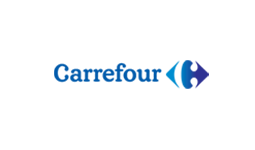Mandatory Electronic Invoicing in Austria
Learn how to get your company ready to exchange documents in accordance with regulations in Austria with the support of Comarch
Learn how to get your company ready to exchange documents in accordance with regulations in Austria with the support of Comarch

Austria has been working on e-invoicing solutions since 2012, when the IKT-Konsolidierungsgesetz, a law to consolidate ICT solutions and IT procedures in Austria, was enacted. It introduced an e-invoicing obligation for B2G transactions from 2014. Reagrding B2B transaction electronic invoicing stays still voluntary. That means, the clearance model has not yet been implemented and Austria still uses the post-audit model.

Austria has made e-invoicing mandatory for B2G transactions from 2014. Thus, the EU Directive 2014/55/EU was applied. According to Art. 5 of the Austrian ICT Consolidation Act 2012 (Gesamte Rechtsvorschrift für IKT-Konsolidierungsgesetz, Fassung vom 13.06.2012), all domestic and foreign partners of the federal government with contracts are obliged to send structured electronic invoices for the provision of goods and services to departments government. Only the federal government is required to use e-invoicing – with some exceptions. These include insurance contracts, rental or tenancy contracts, advance payments and membership fees. As of April 18, 2020, this mandate was extended to public authorities of the municipal administration. However, there are exceptions where e-invoicing does not have to be used. This includes insurance or leasing contracts.

E-invoices can be submitted to the public administration in the ebInterface or BIS Billing 3.0 format and send via channel (web service or Peppol eDelivery Network) to the e-Rechnung platform. For the purposes of e-invoicing, the Austrian Ministry of Finance has developed a service portal for companies, USP (Unternehmensserviceportal). This portal supports uploading and manually creating invoices as well as submitting them through a web service or service provider. Registering for USP is quite simple. Basically, a digital signature is all that needs to be provided, which can be done by means of ID Austria, mobile phone signature, or Bürgerkarte. In the next step, the relevant company is to be specified. It is also possible to log in to USP with an existing account for FinanzOnline, the portal provided for tax issues. If such an account does not exist yet, it can be created by registering with the Ministry of Finance. Sending invoices via PEPPOL is also possible but requires a PEPPOL Access Point.

Accepted e-invoicing formats are ebInterface (the national XML standard) and and Peppol format BIS Billing 3.0. Invoices issued by domestic companies are processed using the federal government's central platform, the Federal Service Portal (USP) or Peppol network The USP platform has all authentication services required to send e-invoices, plus, it eliminates the need for using electronic signatures.

Required storage period is 7 years from end of calendar year.

Integrity and authenticity may be ensured by any accepted method, for instance: Qualified Electronic Signature or “certain Advanced Electronic Signature” when based on certificate verifiable via Signaturprüfdienst.

Comarch has an own own working solution in Austria and existing clients benefiting from our e-invoicing services on this market. We can help companies send e-invoices to public administration in the required format (ebInterface or BIS Billing 3.0) as well as to business partners (in different formats).
We have 20+ years of experience in carrying out various EDI, e-invoicing, and other document exchange projects around the world. In those years, we have successfully connected more than 130,000 entities from over 60 countries.
Full compliance with the latest data exchange regulations and modern data transfer standards
Applying new technologies and IT solutions in order to streamline workflows and automate activities and procedures
Tailor-made solutions based on processes specific to each company – own road map and a suitable pace of changes
Highest level of security for all sensitive and important company data
If your company is based or has branches in the Austria and you need to prepare your billing and tax systems to comply with the new requirements. Click on the button below to get in touch with one of our experts.

To learn the e-invoicing requirements for a specific country, click on its flag and access the relevant information.
Make sure your business meets international standards with the Comarch e-Invoicing platform, trusted in more than 60 countries. Enjoy hassle-free integration and continuous compliance updates.























